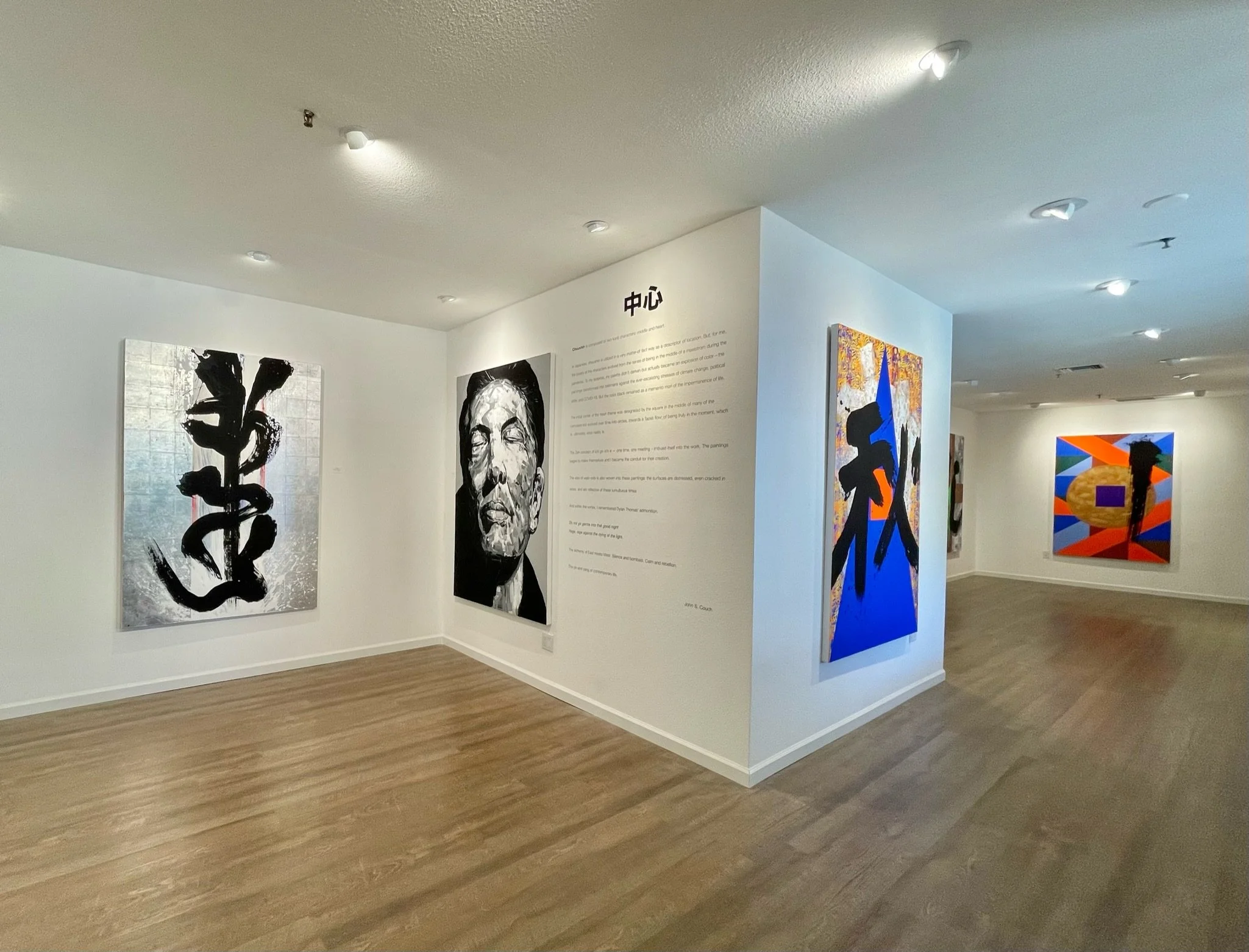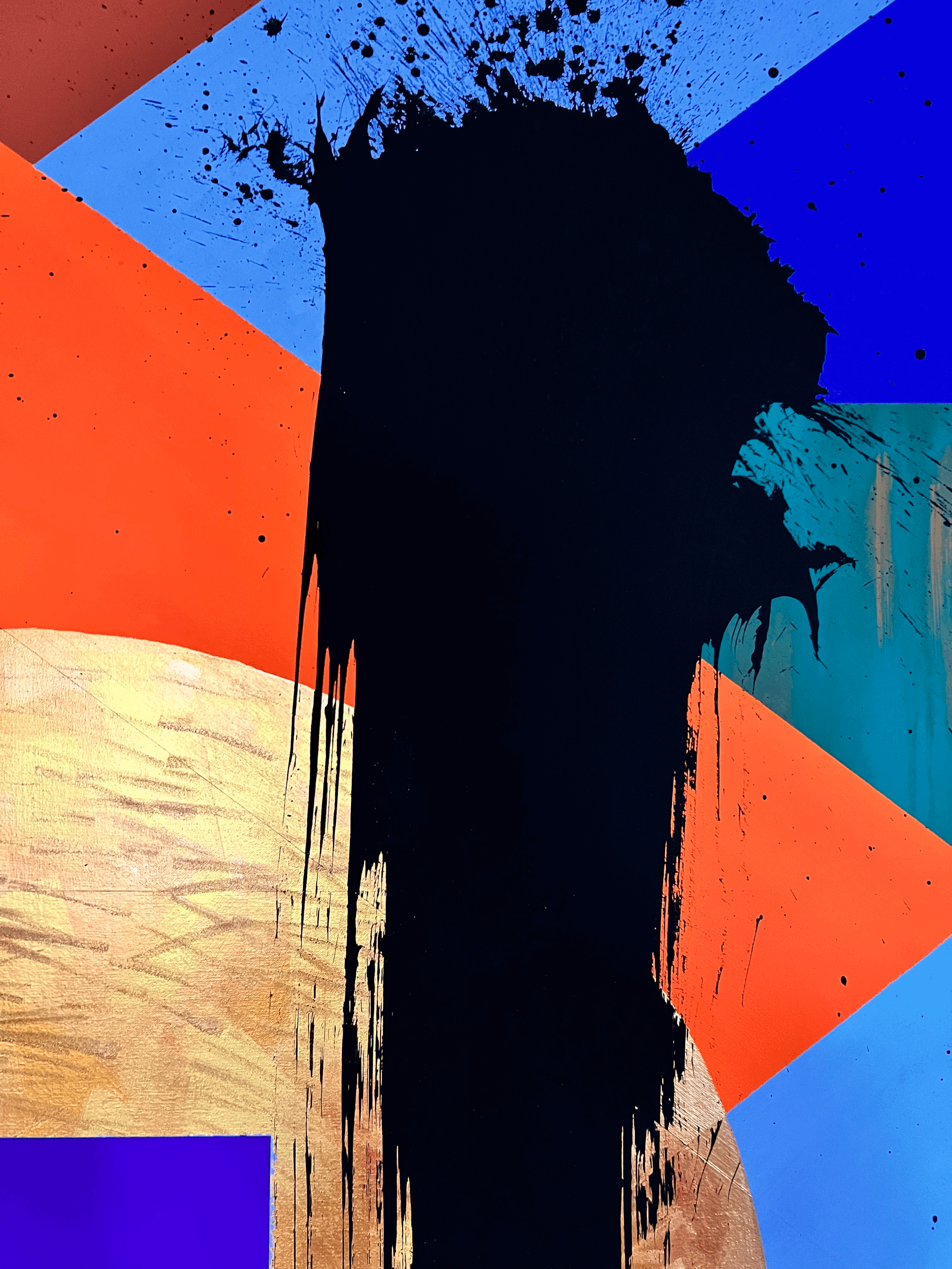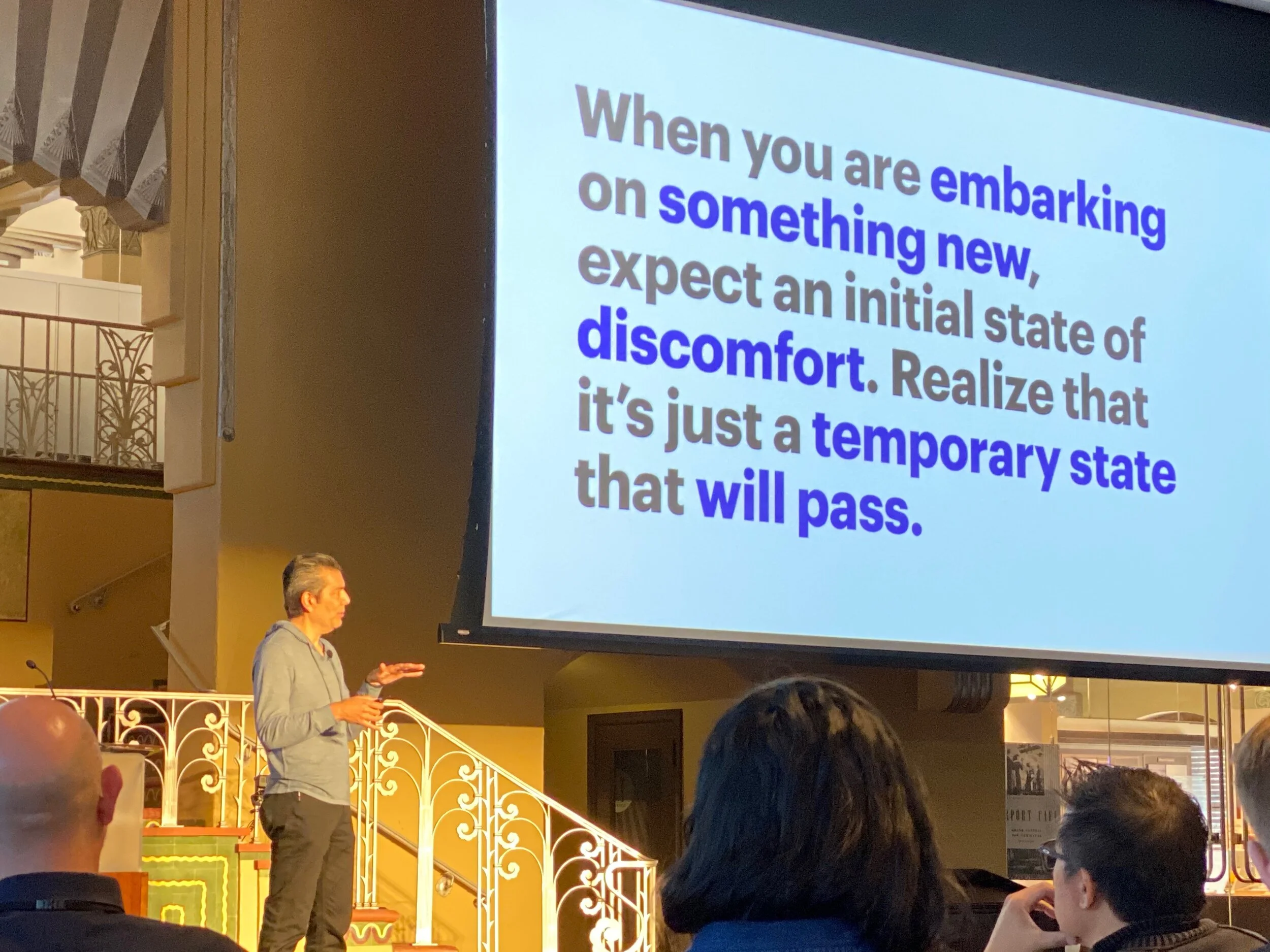“Good morning, you won the lottery.” This is what my wife and I jokingly say to each other every morning. It’s an acknowledgment of gratitude, of the unbelievable unlikeliness of being here, now, against astronomical odds.
Read MoreMaking, creating is the essence of life – we literally move and reproduce. We are constantly creating, whether we are conscious of it or not.
I’ve known for some time that focus destroys fear. Chuushin was the result of my focus on destroying fear.
Read MoreIn my book, The Art of Creative Rebellion, I write about doing something beyond your day job – engaging with a pursuit that is strictly for yourself, not for monetary gain or fame. It’s an uncomfortable place for many of us to be as we feel that any time that is not spent “productively,” that is either in the pursuit of money or given to others (family or friends,) is somehow indulgent. Even selfish. But in reality, we can only experience who we are in these moments of play, when we dance, write, act, paint, draw or go for an aimless walk.
Read MoreHumans are social beings. We need to be in the presence of others. We need community and we need to connect. Being together, physically, allows us to communicate in ways beyond the confines of the computer screen. There have been studies that indicate that somewhere between 70 to 93% of all communication is nonverbal. We notice everything: how physically close someone is to you while they speak; microexpressions (your words may be saying one thing but your face could be saying something else); posture; vocal tone. I’m speculating but I would assume how someone smells affects us as well – the unconscious mind may pick up the scent of stress. We are visual and tactile creatures and ultimately animals so we notice what is unsaid as much as what is stated.
Read MoreIt’s been my habit to do things that are challenging. I believe it’s especially important as we progress through life. That’s why I not only took up learning about Shakespeare but stand-up paddleboarding as well.
Read MoreMy last day as VP, Product Design at Hulu was Monday, February 8th. I worked at that remarkable company for five years and one month. It’s a strange, exciting and liberating feeling to move on to new things. It’s scary and filled with unseen potential.
Read MoreThis is my last essay of 2020. A tumultuous and trying year, to say the least. We all know the issues. But the upside is that this year has allowed me to consider and reflect on what is truly important to me.
Yesterday, December 21st, was the winter solstice: the day with the longest night. Since prehistory, it has also been considered the symbolic death and rebirth of the sun. In addition, yesterday was the great conjunction of Jupiter and Saturn.
Read MoreOn November 20th, I participated in the inaugural Rotman Business Design Initiative event by the Rotman School of Management at the University of Toronto. The theme was Decoding Design for Innovation. The session I was involved in was moderated by Clay Chandler, (Executive Editor, Asia Fortune Magazine), and the legendary designer Bruce Mau and the wonderful Angele Beausoleil (Profesor of Business Design and Innovation at the Rotman School of Management).
Read MoreEnter change. Things happen and we classify them as good or bad. But the things often don’t have much of a conscience to them. An earthquake. A flood. A fire. These things happen and we don’t have control. I can prepare for an unforeseen potential issue by doing what I can, for example, to thin the brush around my house, as I live in a fire-prone part of the country, but once I’ve done what I can, I don’t worry about it much more.
Read MoreThere is the basic notion that if I do something over and over, with enough diligence that I will gain mastery in a particular discipline or practice. This concept was popularized by the famous “10,000-hour rule” that Malcolm Gladwell wrote about in his excellent book Outliers. It has often been misinterpreted that one will become an expert in anything if they put in 10,000 hours of work. In reality, he was referring to “outliers” – people of such talent that they became phenomenal through putting in the hours. In other words, even if I put in 10,000 hours of effort as a child, I’d never become Michael Jordan or Kobe Bryant because I lack the intrinsic talent as well as physical capabilities. I would perhaps become really good but not an outlier.
Read MoreHumans need community and it is often expressed through a form of tribalism which can be, and often is, expressed by conformity. We behave and dress to fit in. And the clear downside of this uniformity is that it can inadvertently diminish your true self.
Read MoreConstructive risk is expansive, has energy, and allows you to consider, What can go right? The opposite of this, is the constrictive, risk-averse, survival-focused mantra of What can go wrong? Risk assessment balances the two but I would propose that most of us tend to focus on what can go wrong over what could go right.
Read MoreI believe each of us is born innately creative, as I’ve written many times before. We are born with an inner genius that is within us and it is up to us to find it, honor it, and allow it to express itself. What we often do instead, is suppress that voice, and conform over time into a state of survival. During these times of seismic change, just getting through the day is hard enough but I would argue that it is exactly during these times that we are afforded the ability to “reset” our priorities and reconnect to our inner creative core. In times of desperation and anxiety, our inner state tends towards the conservation of energy, towards sadness and depression, staying in bed, binging on bad news on our phones. However, humans are capable of great things and in order to become change agents, we need to activate ourselves into a state of action and this can happen by reconnecting to our inner daemon. (I even named the protagonist of my novel, LUMINAL: The Cosmic Misadventures of an Existential, Intergalactic Assassin, “Daemon.”)
Read MoreI had my monthly catch up with a new friend, who I’ve only ever connected with via Zoom. He’s a designer, he’s also half-Japanese like me, and we are both fascinated with the subject of creativity. The basic conundrum we both aligned on is that there is the seemingly at-odds state of needing to make a living and the need to create. Ideally, we would be making a living from what we love doing but that’s often the exception, not the rule.
Read MoreOur lives are fragmented by distractions, ranging from social media to the news (often stressful) and just the day-to-day demands of life. It’s even harder if you happen to have ADD or ADHD. Focusing on the task at hand or even on the conversation we are having with another person can be challenging. I believe this distraction is because we are not fully present in the moment.
Read MoreLast Sunday morning I participated in a webinar that Tea Leaves presented, a conversation between Albert Shum (CVP, Design at Microsoft) and myself, entitled “Creative Rituals.” The wonderful Lana Sutherland, CEO of Tea Leaves moderated.
The premise was:
“As we collectively experience a global pandemic, our systems, structures, and social mores are being put to the test. In this time of shelter and reflection, it has become imperative that we cannot simply go back to the way things were. What, then, are the new norms?”
We covered a lot of ground ranging from how to maintain creative health during these times to working virtually during a pandemic as well as personal stories of cultural perspective and diversity.
Read MoreThe weird thing about these times is that we feel that we simultaneously have too much time on our hands and yet have no time at all. Time is tricky. Because when we finally get through all of the things we have to do, working, taking care of the kids, buying groceries, doing the dishes, fixing the car, fixing whatever is wrong with the house, trying to work out, spending time with family and (socially-distanced) friends; we are exhausted. Oh yeah, and then there is the global pandemic. And the current political and social turmoil...
Read MoreThe term Renaissance is derived from French renaissance, from re- ‘back, again’ and naissance ‘birth’ (from Latin nascentia, from nasci ‘be born’). The Renaissance is, of course, the period of transition in Europe from the Middle Ages (5th to 15th centuries) to Modernity. The Age of Reason and Enlightenment ran from about the 17th and 18th centuries. What these periods had in common was a movement away from a controlled information society in which one did not question authority or religious doctrine towards a period of inquiry and thinking.
Read MoreThese are not normal times, we know this. Global pandemic. The country divided. Civil unrest. Working from home. However, humanity has endured plagues and social upheaval in the past. Our sense of scale, and what we consider “normal,” is often limited to what we’ve gone through in the duration of our lives. But this planet has dealt with worse than us.
Read MoreI really wish talent was enough. From childhood, we’re told that talent and hard work will get you to where you want to be and it’s not entirely wrong – working hard at your craft is important. But there are other factors outside of our control like opportunity (being born into wealth or poverty; having access to resources or people who can help); and timing (ideas that are too ahead of their time don’t work).
Read More


















